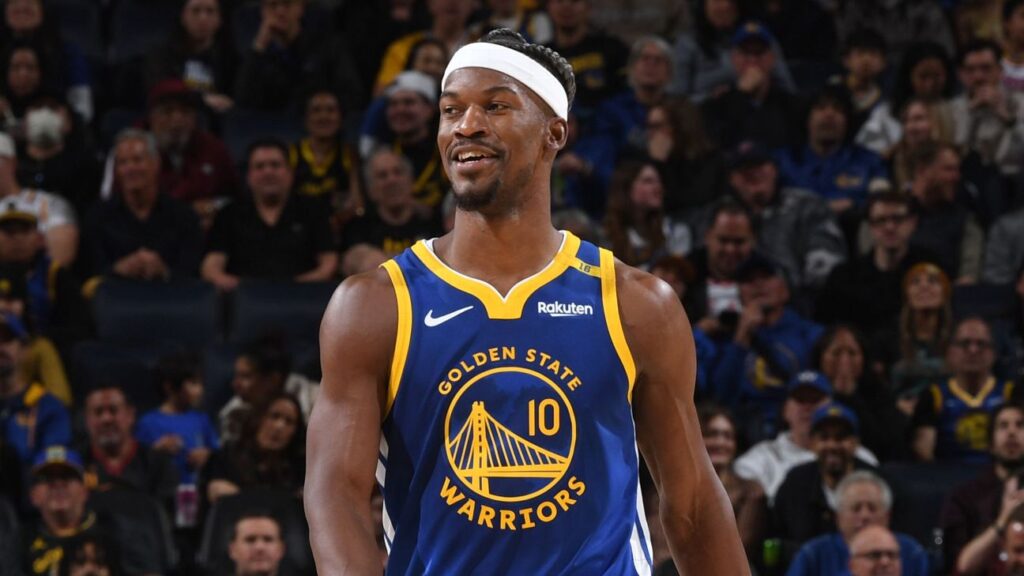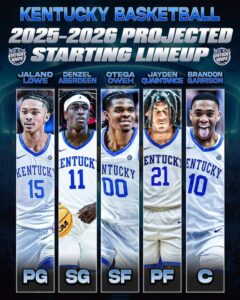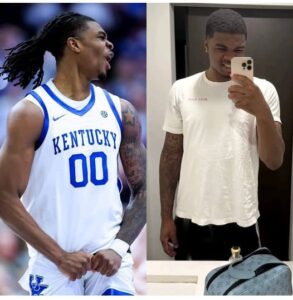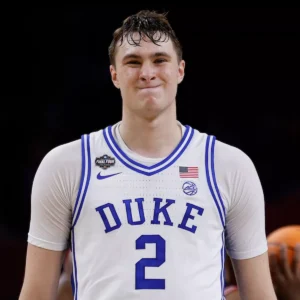
It’s late in the fourth quarter. The lights are bright, the tension thick, and the air inside the arena is electric. The ball finds Jimmy Butler on the wing. He sizes up his defender, lowers his shoulder, and with a swift move and one powerful step, explodes to the rim. A two-handed slam follows—a punctuation mark, a statement, a declaration: Jimmy Butler III, with authority.
That moment—so visceral, so emblematic of who Jimmy is—has come to define not just individual games, but entire seasons. It’s not just a highlight. It’s a microcosm of his career, a flash of brilliance built on toughness, work ethic, and an insatiable hunger to win.
From Tomball to Titan
Jimmy Butler’s story starts in the humble Texas town of Tomball. A small community on the outskirts of Houston, it’s not exactly known as a basketball hotbed. But for a young Butler, it was home—and a place filled with challenges that would shape the man he would become.
Kicked out of his home as a teenager, Butler bounced from house to house, living with friends, scraping by, and chasing the dream that often felt just out of reach. It was in Tomball where the seeds of his resilience were planted. “You can’t fake toughness,” he once said. And Butler didn’t have to. His whole life was the proving ground.
After junior college and an underrated stint at Marquette, Butler entered the NBA as the 30th overall pick in 2011, selected by the Chicago Bulls. Not many expected much from him. He wasn’t flashy, didn’t have a top draft grade, and he certainly didn’t come with hype. But that’s never been his game.
He had something more dangerous: a chip on his shoulder, and the relentless will to succeed.
The Chicago Climb
In Chicago, Butler transformed from role player to cornerstone. He learned from the likes of Derrick Rose, Luol Deng, and Joakim Noah. Slowly, he carved out his place—not just through scoring, but through tenacious defense and all-out hustle. He wasn’t chasing the spotlight; he was earning his stripes.
By the 2014-15 season, Butler had arrived. He won the NBA’s Most Improved Player award, and over the next few seasons, he became a perennial All-Star. He guarded the opposing team’s best player, he hit clutch shots, and most importantly, he led. Not always with words—but with action, with presence.
Still, despite the rise, Chicago never quite made it over the hump. Frustration mounted, both internally and externally, and after six seasons, Butler was traded to the Minnesota Timberwolves. That chapter, brief but intense, would only further burnish the legend of his mentality.
The Minnesota Saga: A Masterclass in Mentality
If there’s one moment that encapsulates the myth of Jimmy Butler, it might be the infamous 2018 Timberwolves practice. The one where he took the third-stringers, stormed the starters, talked trash to management, and dominated.
It wasn’t just about ego. It was about accountability.
Butler’s passion and drive didn’t mesh with the culture in Minnesota, and soon he was off to Philadelphia. The Sixers came within a buzzer-beater of the Conference Finals, and Butler again proved his worth in high-stakes moments. Still, it wasn’t quite the right fit.
Then came Miami. And that was where everything clicked.
Heat Culture Meets Its Embodiment
When Jimmy Butler signed with the Miami Heat in 2019, critics questioned the move. Was it about lifestyle? Money? A step back in contention?
Turns out, it was about culture.
If there’s an organization that mirrors Butler’s mentality, it’s the Miami Heat. Pat Riley. Erik Spoelstra. No-nonsense, hard-working, no-excuses basketball. The fit was seamless.
In the 2020 NBA Playoffs—inside the Orlando bubble—Butler took the Heat on a Cinderella run to the NBA Finals. His performances were legendary: a 40-point triple-double in Game 3, a 35-12-11 outing in Game 5, and two-way dominance that had LeBron James and the Lakers sweating.
It wasn’t just the numbers. It was the grit. The image of Butler, bent over the scorer’s table, drenched in sweat after carrying the Heat to a win, became iconic.
He wasn’t just playing. He was imposing his will.
“Playoff Jimmy” Is Real
There’s a mythos that surrounds certain players when the postseason begins. Michael. Kobe. LeBron. And now, in his own way, Jimmy Butler.
“Playoff Jimmy” is not a gimmick. It’s real. His career averages elevate in the postseason. He becomes more efficient, more assertive, more unstoppable. He’s not afraid of the moment—he lives for it.
In the 2023 playoffs, as the 8th seed Miami Heat made an improbable run to the NBA Finals, Butler was once again the catalyst. He dropped 56 points against the Milwaukee Bucks in Game 4, outdueling Giannis Antetokounmpo in one of the greatest playoff performances of all time.
Every drive was purposeful. Every possession was personal. The Heat weren’t just playing games—they were playing for something bigger. And Jimmy was leading the charge.
Leadership Through Fire
Leadership is a word often thrown around in sports, but few embody it like Butler. He leads through effort, through accountability, through demand. He’s not afraid to challenge teammates. He’ll be the first to dive for a loose ball and the first to speak out when standards slip.
He doesn’t need to be liked. He needs to win.
It’s this no-nonsense approach that has galvanized rosters filled with undrafted players, young talent, and seasoned vets. In Miami, everyone buys in, because their leader walks the talk.
You can see it in the way Bam Adebayo defends. In how Tyler Herro shoots with confidence. In how Erik Spoelstra trusts his guys, no matter the odds. That trust flows from the top down—and Butler is at the center of it.
More Than a Basketball Player
Butler’s impact extends beyond the hardwood. He’s become a cultural figure—whether through his hilarious coffee company in the bubble (“Big Face Coffee”), his eclectic music taste, or his expressive fashion choices.
He’s a reminder that athletes can be multi-dimensional—fierce competitors on the court, and wholly unique individuals off of it.
But make no mistake: his focus remains singular during the season. Championships. Respect. Legacy.
Legacy, Cemented with Force
Jimmy Butler may not have the MVPs, the scoring titles, or the glitz that surrounds some of his peers. But what he has is arguably more valuable in the eyes of real hoop heads: respect.
Respect from opponents who know he’s going to fight every possession.
Respect from coaches who see how he transforms a locker room.
Respect from fans who recognize that when it matters most, he shows up.
And if there’s any moment that encapsulates the way Jimmy leaves his mark, it’s this: a high-stakes game, the shot clock winding down, the defense bracing for impact—and Butler rises, cuts through the contact, and throws it down.
Jimmy Butler III. With authority.
What Comes Next
At 35, Jimmy isn’t slowing down. His game isn’t reliant on pure athleticism, but on craft, on reads, on intensity. He’s evolved—he’ll give you 40 one night and lock up your best player the next.
The question isn’t whether Butler can win a ring—it’s whether the world will finally recognize that he’s already won something even harder: the unwavering respect of a league that doesn’t give it easily.
Whatever the next season holds, one thing is certain: when the lights get bright and the stakes get high, there will be a moment—maybe a chase-down block, a pull-up jumper, or a rim-rattling dunk—where Jimmy takes over.





